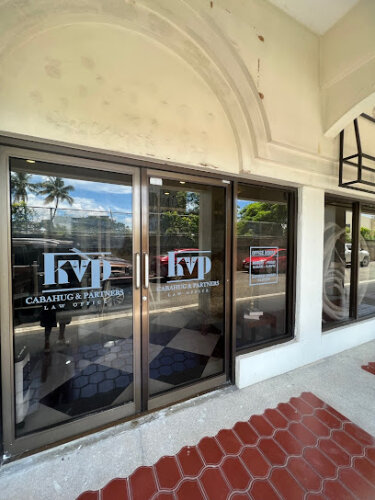Best Oil, Gas & Energy Lawyers in Cebu City
Share your needs with us, get contacted by law firms.
Free. Takes 2 min.
List of the best lawyers in Cebu City, Philippines
About Oil, Gas & Energy Law in Cebu City, Philippines
Oil, gas, and energy play a vital role in the development of Cebu City, Philippines. The city is home to several oil and gas companies, power plants, and renewable energy projects. Oil, gas, and energy law in Cebu City encompasses the legal frameworks and regulations that govern the exploration, production, distribution, and use of these resources.
Why You May Need a Lawyer
Seeking legal advice in the field of oil, gas, and energy can be crucial in various situations, including:
- Negotiating contracts with oil, gas, or energy companies
- Resolving disputes related to land acquisition for exploration purposes
- Understanding your rights and obligations as an energy consumer
- Dealing with environmental issues and compliance
- Obtaining necessary permits and licenses for energy projects
Local Laws Overview
In Cebu City, Philippines, several laws regulate the oil, gas, and energy sector. Some of the key aspects of these laws include:
- The Oil and Gas Exploration and Development Act, which governs the exploration and development of oil and gas resources
- The Renewable Energy Act, which promotes the development and utilization of renewable energy sources
- The Electric Power Industry Reform Act, which regulates the generation, transmission, and distribution of electric power
- Environmental laws and regulations to ensure the protection of the environment during energy operations
- The Philippine Energy Plan, which outlines the government's strategies and policies for the energy sector
Frequently Asked Questions
1. Can a landowner refuse to allow oil or gas exploration on their property?
Yes, a landowner has the right to refuse oil or gas exploration on their property. However, it is essential to understand the legal implications and possible consequences of denying access to your land.
2. What permits are required to establish a renewable energy project in Cebu City?
Depending on the type and size of the project, you may need to obtain permits such as an Environmental Compliance Certificate, a Clearance from the Energy Regulatory Commission, and various local government permits.
3. How can I resolve a dispute with an oil, gas, or energy company?
It is advisable to consult a lawyer specializing in oil, gas, and energy law to help you negotiate or mediate a resolution. If necessary, legal action can be pursued through the appropriate courts or alternative dispute resolution methods.
4. What are my rights as an energy consumer in Cebu City?
As an energy consumer, you have the right to fair and reasonable energy prices, accurate billing, reliable service, and a safe connection. In case of any concerns or disputes, seek legal advice to protect your rights.
5. How can I ensure compliance with environmental regulations in energy projects?
Compliance with environmental regulations is crucial in energy projects. Engage an experienced lawyer who can guide you through the necessary permits, environmental impact assessments, waste management plans, and other compliance requirements.
Additional Resources
For further information and assistance, you may refer to the following resources:
- Department of Energy, Philippines: www.doe.gov.ph
- Energy Regulatory Commission: www.erc.gov.ph
- Environmental Management Bureau, Philippines: www.emb.gov.ph
Next Steps
If you require legal assistance in the field of oil, gas, and energy in Cebu City, Philippines, consider taking the following steps:
- Gather all relevant documents and information related to your case
- Research and shortlist experienced lawyers specializing in oil, gas, and energy law
- Schedule consultations with the selected lawyers to discuss your situation
- Choose a lawyer who understands your needs and can provide reliable legal advice
- Work closely with your chosen lawyer to navigate the legal complexities and protect your interests
Lawzana helps you find the best lawyers and law firms in Cebu City through a curated and pre-screened list of qualified legal professionals. Our platform offers rankings and detailed profiles of attorneys and law firms, allowing you to compare based on practice areas, including Oil, Gas & Energy, experience, and client feedback.
Each profile includes a description of the firm's areas of practice, client reviews, team members and partners, year of establishment, spoken languages, office locations, contact information, social media presence, and any published articles or resources. Most firms on our platform speak English and are experienced in both local and international legal matters.
Get a quote from top-rated law firms in Cebu City, Philippines — quickly, securely, and without unnecessary hassle.
Disclaimer:
The information provided on this page is for general informational purposes only and does not constitute legal advice. While we strive to ensure the accuracy and relevance of the content, legal information may change over time, and interpretations of the law can vary. You should always consult with a qualified legal professional for advice specific to your situation.
We disclaim all liability for actions taken or not taken based on the content of this page. If you believe any information is incorrect or outdated, please contact us, and we will review and update it where appropriate.

















